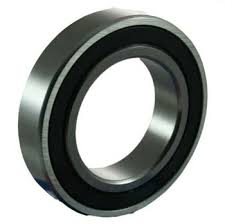Nov . 11, 2024 10:23 Back to list
custom imperial spherical bearings
Understanding Custom Imperial Spherical Bearings Engineering Excellence in Motion
In the realm of mechanical engineering, precision and reliability are paramount, especially when it comes to motion components. One specialized component that epitomizes these qualities is the custom imperial spherical bearing. With unique designs catering to various industrial applications, these bearings play a crucial role in enhancing machine performance and longevity.
What are Spherical Bearings?
Spherical bearings, often referred to as self-aligning bearings, consist of an inner ring with a spherical surface and an outer ring that accommodates this shape. This design allows for angular misalignments between the shaft and housing, reducing friction and wear in rotating applications. They are used extensively in equipment where there is a need for alignment and support in multiple directions, such as in automotive and aerospace industries, heavy machinery, and even medical devices.
The Importance of Customization
While standard spherical bearings meet the specifications of many applications, custom imperial spherical bearings are tailored to fit specific requirements. Manufacturers often modify dimensions, materials, and performance characteristics to match particular operational conditions. These customized bearings can accommodate unique shaft sizes, load capacities, and environmental challenges such as temperature extremes, moisture, and exposure to corrosive substances.
Custom bearings offer several advantages
1. Enhanced Performance Tailored specifications can lead to improved load handling and extended service life. 2. Space Efficiency Custom bearings can be designed to fit within limited space constraints, promoting compact equipment designs. 3. Cost-Effectiveness Though they may have a higher initial investment, custom bearings can reduce overall maintenance and replacement costs by preventing premature failure.
Material Selection
The choice of material for custom imperial spherical bearings is critical to their performance. Common materials include
- Steel Known for its high strength and durability, steel is often used in high-load applications. Options like stainless steel add resistance to corrosion. - Bronze This material offers excellent wear resistance and low friction, making it suitable for applications with less frequent lubrication. - Polymer-based materials These lightweight options provide good chemical resistance and lower friction, ideal for environments subject to frequent contamination.
custom imperial spherical bearings

The selection process typically involves assessing both the operational environment and the performance expectations to ensure optimal material compatibility.
Applications of Custom Imperial Spherical Bearings
Custom imperial spherical bearings find applications across various sectors
- Aerospace In aircraft landing gears and control systems, where reliability and lightweight solutions are paramount. - Automotive In suspension systems and differentials, where they accommodate movement and load variances. - Industrial Machinery Used in conveyor systems and robotic arms, where precise motion control is necessary. - Medical Equipment In devices such as surgical robots and imaging machines, where precision and hygiene are critical.
The versatility of custom spherical bearings makes them an integral part of numerous advanced technologies.
Challenges in Designing Custom Bearings
Despite their advantages, the design and manufacturing of custom imperial spherical bearings come with challenges. Engineers must carefully balance performance characteristics, such as load capacity, wear resistance, and alignment capabilities, with cost and manufacturing feasibility. Advanced simulation software can help predict bearing performance under various conditions, allowing for informed adjustments before production.
Moreover, manufacturers must maintain stringent quality control standards to ensure that each custom bearing meets both industry regulations and customer expectations. This includes thorough testing procedures, which can encompass everything from load testing to environmental exposure assessments.
Conclusion
Custom imperial spherical bearings represent a fusion of engineering ingenuity and practical application. By enabling efficient motion control and offering bespoke solutions to unique challenges, they play a pivotal role in diverse industries. As technology continues to evolve, the importance of these specialized components will only grow, driving further innovation and enhancing performance standards across various engineering disciplines. For businesses looking to improve their machinery's effectiveness and reliability, investing in custom spherical bearings is a step toward achieving operational excellence.
Latest news
-
25MM 2 BOLT UCFLX05-14 Flange bearing unit( oval)
NewsMar.07,2025
-
4 bolt UCF 200 series Pillow block bearings
NewsMar.07,2025
-
25MM 2 BOLT UCFLX05-14 Flange bearing unit( oval)
NewsMar.07,2025
-
UCF216-50 4-Bolt Flange Housing Square Bearing
NewsMar.07,2025
-
25MM 2 BOLT UCFLX05-14 Flange bearing unit( oval)
NewsMar.07,2025
-
spherical roller bearing material exporter
NewsMar.07,2025





